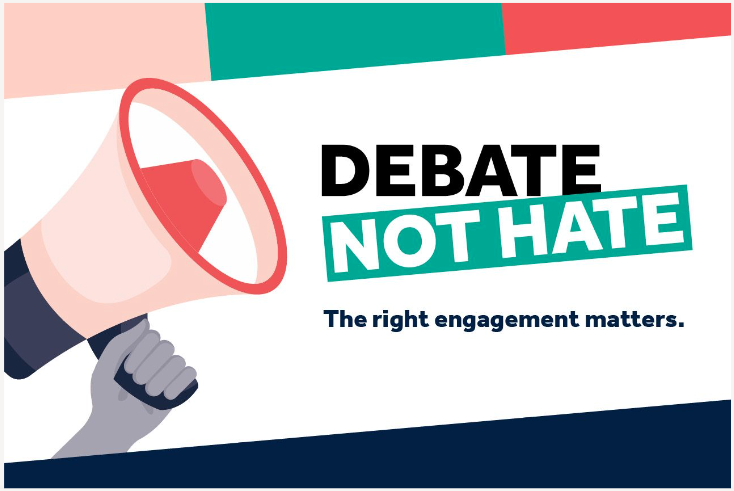You’ve read the manifestos (you have, haven’t you?), now meet your candidates!
You can read the manifestos via the links below.
…and once you’ve done that, find your candidates at https://whocanivotefor.co.uk/ and email your questions over to them!
Above – from yesterday’s blogpost
There are at least two public debates coming up that I know of for the Cambridge City Council elections:
Thurs 18 April 2024- Thurs 25 April 2024 (Romsey Ward hustings – 7 PM start at Ross Street Community Centre)
Followed by two informal drop-in sessions:
- Sat 27 April 2024 (Queen Edith’s and Coleridge Wards – 10am-2pm at Rock Road Library’s community room)
- Tues 30 April 2024 (Market Ward candidates – 5-7pm at Together Culture, 5 Fitzroy Street, Cambridge down the road from The Grafton Centre’s FS/Burleigh Street entrance)
“Why create lots of unnecessary extra work for the local political parties?!?”
Just over a decade ago I recall having a conversation with a couple of former councillors now long-departed from the world of Cambridge’s local democracy. They told me that given the choice between working hard in a ward and winning on a high turnout vs winning a ward with little work and on a low turnout, many would take the latter. Which made some sense back then, but makes less sense now given recent political history from global to local.
“Personally I think it would be nice in the run up to the annual local elections to have a set piece local question time.” – A Dragon’s Best Friend, 09 Apr 2012
The comments from the time make for interesting reading – if only to show the spurned potential that social media once had to be used positively to improve our democracy. It was those early blogposts (eg this one) from over a decade ago that got me drawn into scrutinising local democracy as I tried to figure out what to do with my post-civil-service burnt-out self.
You could say there’s a grim irony of me making the case for ‘going back to tried-and-tested techniques of campaigning’ given some of the things I wrote back in the early 2010s
But that omits my repeated statements about social media providing tools to complement, not replace face-to-face engagement. And hardly anyone could have predicted the events of the following decade in the early 2010s, let alone the effect all of those things would have on us. And we still have a general election looming.
At the same time, local history and political history tells us that there is no ‘going back to how things were.’


Above – Opening the Town Hall Door – Jane Hutt from 1990.
Written for the National Council for Voluntary Organisations over 30 years ago – including paragraphs about preparing for the Community Charge/Poll Tax, and the compulsory tendering of public services, Ms Hutt reminds us of how hard it used to be to get information out to the wider public.
Today, we only need to go online to pull out meeting papers. The current challenge those scrutinising local government face today is one of ‘too much information’ (or rather ‘too much irrelevant information and not enough short, sharp summaries of the really important stuff). And part of that comes down to citizenship education for adults as much as it does condensing, simplifying, and consolidating public service organisations both to avoid repetition of tasks, and to make it easier for everyone to know who has responsibility for what. Which is one of the aims of the Cambs Unitaries campaign.
South Cambridgeshire’s new MP candidates debated unitary councils recently.
You can see the closing statements from the party representatives below from the meeting at Coton Village Hall on 16 April 2024
You can watch the full video here which was filmed by BonkersBuswayCambs campaign – you tell what they think of the controversial Cambourne-2-Cambridge busway plans from the Greater Cambridge Partnership. (I’m slightly disturbed that their animated video avatar looks like a cartoon version of me in my early 20s!)
Anyway, make what you will of the statements by the candidates. It will be interesting to see how the first exchanges influence the local manifesto content and existing policies of the local political parties. No manifesto survives its first public engagement unscathed. I’m hoping that these local elections with a growing number of opportunities for the general public to meet the candidates face-to-face at public events will both improve & refine the policies that the parties currently have, and that we see some new and enthusiastic faces getting involved in local democracy and campaigning for the first time. Because passionate people tend to be more persuasive than a piece of paper.
Food for thought?
If you are interested in the longer term future of Cambridge, and on what happens at the local democracy meetings where decisions are made, feel free to:
- Follow me on Twitter
- Like my Facebook page
- Consider a small donation to help fund my continued research and reporting on local democracy in and around Cambridge.
Below: Don’t think you know enough about democracy and politics? Buy a cheap second-hand book on GCSE Citizenship which covers the very basics on national government, and a little on local government too. When you’re done with it, pass it on, or donate it to a charity shop. (If it’s published before 2016 it will also contain the rights we used to have when the UK was in the EU).

